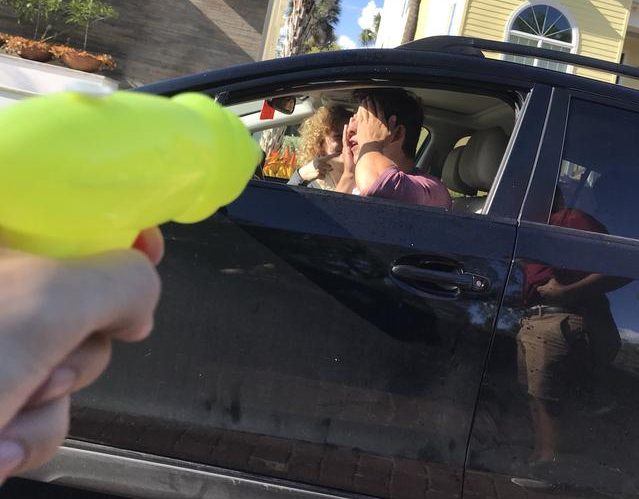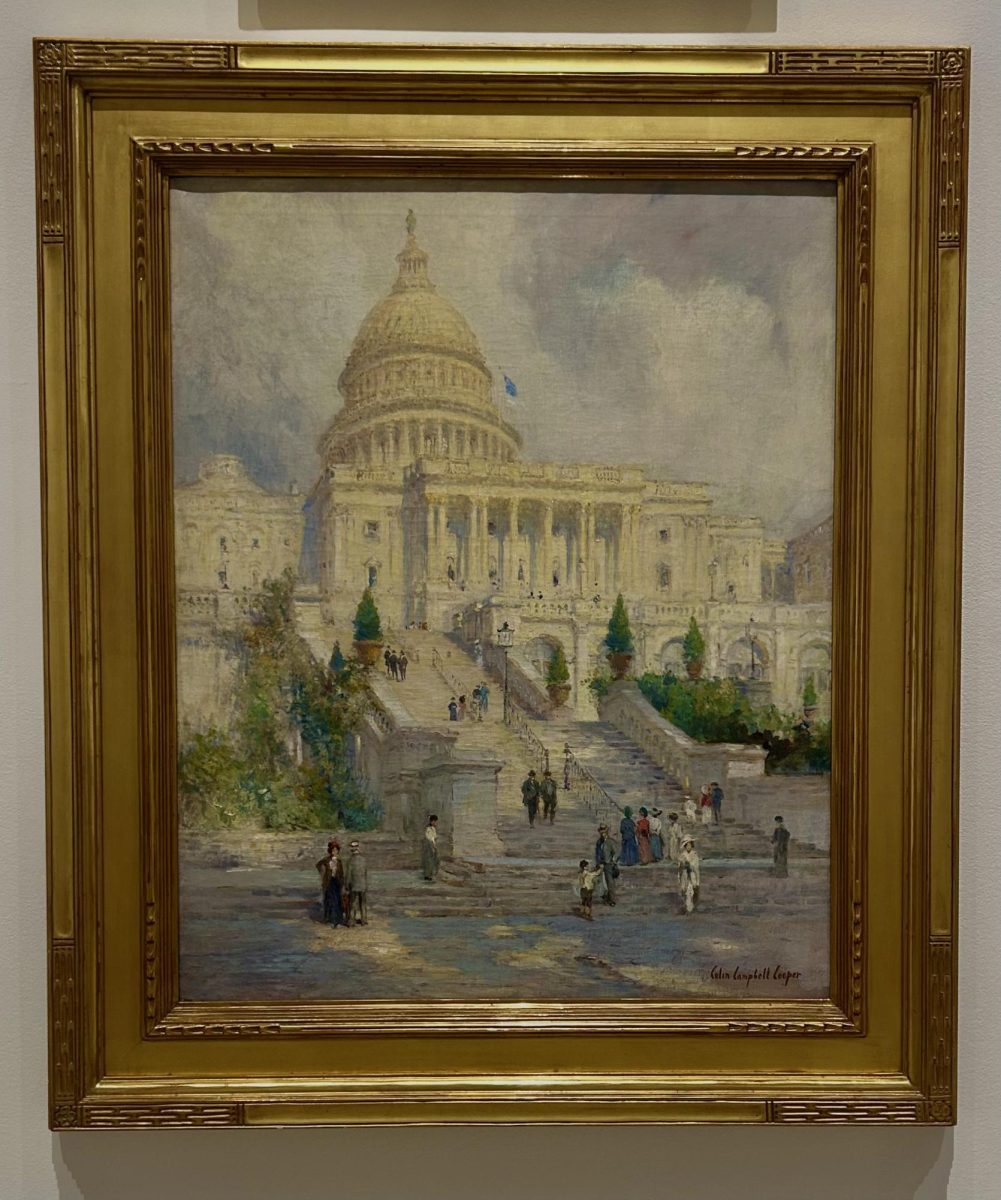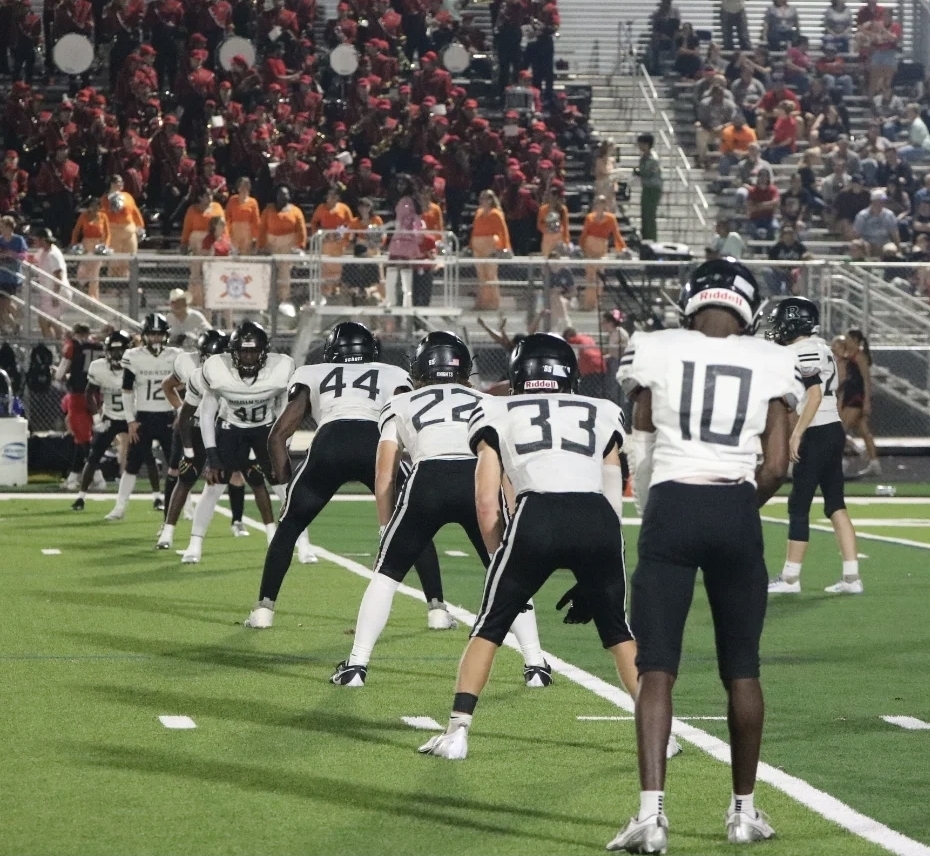Water Wars gets washed away: find out what really happened
The senior’s annual Water Wars competition comes close to cancellation
Photo Courtesy the Water Wars twitter account, @rhswaterwar18
Nick Chesney (’18) is eliminated from Water Wars, the senior water gun fight, while in his car. The photo was tweeted as proof of the team’s “kill”.
April 18, 2018
Every year, seniors at Robinson compete in a competition called Water Wars where students make teams, plot, ambush, and attack each other– all with water guns. But this year, though Water Wars is said to be unaffiliated with the school and county, administrators thought the festivities got a little out of hand and the competition was almost completely canceled.
The original rules for Water Wars stated that students were not allowed to use shields, substances other than water, or ice to eliminate other participants and established that school, school functions, practices, work and students’ houses would be considered “safe zones” where people could not be eliminated.
According to a student coordinator of Water Wars, Claire White (’18), during the second week of the competition, students started to get reckless with their water fighting tactics. Some students would drive unsafely to shoot others while in their cars, others would trespass onto property, and some students would go to extreme lengths to trap people in their driveways.
Administrators at Robinson quickly caught on to problems being caused by Water Wars and a telephone message was sent to the parents of all seniors at Robinson, asking them to make sure that students were being safe.
“It got to a point where [Principal Robert Bhoolai] individually called my parents and was like– alright it’s gotten to be too much… we need to ask you guys to shut it down because it’s just too unsafe for everyone,” White said.
Soon after, a telephone message from Bhoolai was sent out to all parents of Robinson seniors making them all aware of his concerns.
The twitter account for Water Wars, @rhswaterwar18, tweeted after the phone calls on April 7, warning that if students did not refrain from reckless driving and trespassing, Water Wars could be canceled.
“The school did not cancel it, I did put out a request to senior parents saying ‘you know this is not a safe thing to do’, ‘ask your kids to stop’,” Bhoolai said. “The decision to actually cancel the game came from the students after they spoke with their parents… I dont have the power to cancel Water Wars. It’s not my thing to cancel.”
According to White, Bhoolai “officially” shut down Water Wars after conflicts arose, however, because Water Wars is not officially affiliated with the school, the administration did not have any real authority to cancel the event.
“He just sounded so threatening on the voicemail… we’re not going to take the risk,” White said. “I think it’s just more the threat that was scary than anything that they actually could have done.”
Instead of canceling, new rules were put into play on April 9 that prohibited students from being on private property if the subject was not participating in Water Wars and from shooting students while in cars.
While these rules do satisfy administrators’ concerns, many students feel that all the back-and-forth taken too much away from the game and are deciding not to participate.
According to Lance Maulsby (’18), a member of a Water Wars team, some students committed “ritual suicide” where they eliminated themselves from the game to protest the school’s involvement in Water Wars and the new rules.
“Personally my group was incredibly upset at the changes, we actually refused to continue playing,” Maulsby said. “Seeing as it wasn’t necessarily a school sanctioned function, the school honestly had no real oversight… ideally the school would have just left us alone and let us do what we please.”
So, Robinson juniors will wait until next year to find out if the tradition of Water Wars will return.











